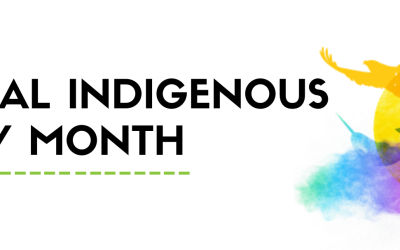Frontier Centre: Bill C-7, the Governance Act proposed by former Indian Affairs Minister Robert Nault, contained measures that strengthened accountability on reserves. Can you summarize its most important sections?
Don Sandberg: Rules for band elections. Currently on many First Nations you are at the mercy of who controls the purse strings, who gives out the new homes, and of bribery, manipulation of voters lists and questionable electoral officers. Accountability and transparency in regards to band finances? Currently I would have to say there are none. Human rights? Many First Nations people suffer at the hands of despots.
FC: How important was the bill to aboriginals?
DS: Very. We had, for the first time that aboriginal people can recall, a minister of the government saying to the ordinary people on the reserve, “I know what your problems are through your many letters asking for assistance and I want to assist by making band councils accountable not only to you but the taxpaying public.”
FC: Now that the Bill has died on the Parliamentary order paper, do you expect it to be re-introduced? In what form?
DS: Hopefully. With more clarity and improvements to the wording contained in the human rights section. Moreover, with the appointment of a native ombudsman.
FC: You have told some eloquent and poignant stories about band members from various reserves who have had their lives turned upside down by the arbitrary exercise of band powers. How bad is the problem? How many people have been affected?
DS: The problem exists today, I am sad to say, as a ways and means of controlling the people by some, not all, leaders, and it appears to work. To speak out against them, you risk being put off the reserve, your child’s post-secondary education funding could be cancelled, your relatives could be blacklisted from any employment on the reserve. They have even tracked people outside the reserve to attempt to have that person’s employment terminated by their new employer. They can make life very difficult.
FC: You maintain that avenues of redress for reserve residents who have been poorly treated are weak. Can you describe how the deck is stacked against them?
DS: Currently there is nowhere to turn. The Federal Department of Indian and Northern Affairs appears to turn a blind eye and assists the band council more. You can turn to the courts if you have the money. Then you are up against some of the top lawyers that represent the leaders who have full control of the band funding. Huge amounts of money are spent on lawyers by them. Sadly, it is the people’s own money that helps persecute them. We are also not recognized under the Charter of Human Rights and Freedoms whose protection other Canadians enjoy.
FC: Do you think the Indian Act itself needs fundamental revision? What features need to be changed?
DS: The Indian Act is an outdated piece of legislation; currently it is all we have. The government has to start policing their funding commitments to the native people and respecting the taxpayers that fund aboriginal organizations. And, again, appoint a native ombudsman’s office with the teeth to do a proper job.
FC: Is it possible to conceive of a Bill of Rights for First Nations people, to be added to the Act to ensure that they enjoy the same rights as non-aboriginal Canadians?
DS: Yes.
FC: One of the most Draconian tools used by band councils to control their members is the threat of a band council resolution to evict troublemakers. Should any government have the power to turf people out of their homes on short notice?
DS: No. In extreme cases, yes, depending on the severity of the situation and for the protection of the public, yes. However, these matters must be left to professional people in the justice system. The rule of law must apply to all people. Band councils cannot continue to act as judge, jury and executioner to impose their power over people. How does this cudgel affect the behaviour of reserve residents? They are afraid to speak out, afraid to participate in band meetings, they are afraid to be seen associating with certain people. They must show respect to the leaders and support at all times.
FC: The Frontier Centre has argued that a root cause of First Nations poverty is the lack of individual property rights on reserves. Do you agree?
DS: Yes. Currently you are at the mercy of the leadership. They can shut down a business, move you and your family out of your home. Many people are reluctant to start a business. Bank loans on First Nations have many restrictions because of this.
FC: Another economic problem is the sections of the Indian Act that forbid non-natives from seizing assets of reserves, provisions that effectively cut your people off from avenues of credit in the wider society. How can this deficiency be corrected?
DS: Currently, under the Indian Act, a band member is entitled to 160 acres of land. If a band member had legal title to this land, with no interference from band councils, it could work.
FC: Sovereignty itself may be a serious impediment to the development of reserve assets, as the courts have consistently refused to enforce contracts signed by First Nations. These judgements are made on the grounds that enforcement would contradict aboriginal autonomy. Isn’t this a vicious circle?
DS: Yes.
FC: The Frontier Centre has endorsed proposals from the Treaty Annuity Group that would take about half of government allocations to the First Nations and redirect the money to individuals and families. Would such a measure work? Does it have limitations?
DS: One would have to hear all arguments. Look to Alberta with the oil royalties to band members. How is that working? It is an interesting topic for discussion, but needs more study.
FC: Because of your involvement with the Frontier Centre, you have received a fax from your band in Norway House to the effect that you are not a member in good standing. Do you have a response?
DS: Yes, This was an excellent way for the Chief to put me in line and to eliminate a potential opposition candidate for the Band council. In addition, to send a strong message to the people those that do not support his leadership will pay the price. My personal feelings are that things will be put right once we move away from a despotic regime on my First Nation and return to a more democratic system, a system that gives the power back to the people. I see the actions of this current Chief in regards to my membership as a temporary glitch and a price that one currently has to pay to speak out for your people.
Read in PDF format here.



